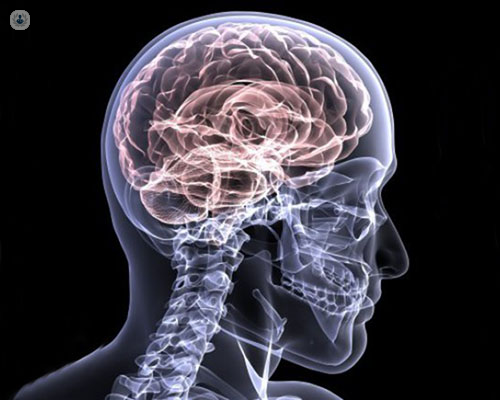Rehabilitation after a traumatic brain injury
Autore:Traumatic brain injury (TBI) can have life-altering consequences, affecting physical, cognitive, and emotional functions. Rehabilitation following a traumatic brain injury is a critical process aimed at helping individuals regain independence and improve their quality of life. This comprehensive approach involves various therapies and interventions tailored to the specific needs of the patient.
In this article below, esteemed consultant neurologist, Professor James Teo, discusses traumatic brain injuries and the importance of rehabilitation after suffering one.

What is a traumatic brain injury?
Traumatic brain injury occurs when an external force injures the brain. This can result from falls, vehicle accidents, sports injuries, or violent incidents. TBI can range from mild concussions to severe brain damage, with symptoms that might include headaches, confusion, memory loss, and changes in mood or behaviour.
Why is rehabilitation important after TBI?
Rehabilitation is essential for recovery after TBI because it addresses the multifaceted challenges that patients face. The goal is to restore function, improve mobility, and enhance cognitive abilities. Without proper rehabilitation, patients might struggle with long-term disabilities and decreased quality of life.
What does TBI rehabilitation involve?
TBI rehabilitation is a multidisciplinary process involving various healthcare professionals, including neurologists, physical therapists, occupational therapists, speech-language pathologists, and psychologists. Each plays a vital role in the patient’s recovery.
-
Physical therapy: Focuses on improving strength, coordination, and mobility. Techniques might include exercises, balance training, and the use of assistive devices.
-
Occupational therapy: Helps patients regain the ability to perform daily activities, such as dressing, cooking, and managing finances. This therapy also addresses fine motor skills and cognitive functions.
-
Speech-language therapy: Aims to improve communication skills, including speech, language, and swallowing. This therapy is crucial for patients who have difficulties with speaking or understanding language.
-
Cognitive rehabilitation: Involves exercises and strategies to enhance memory, attention, problem-solving, and executive functions. This aspect is particularly important for returning to work or school.
-
Psychological support: Addresses emotional and behavioural challenges, such as depression, anxiety, and mood swings. Counseling and therapy help patients and their families cope with the emotional impact of TBI.
How long does rehabilitation take?
The duration of rehabilitation varies depending on the severity of the injury and the individual’s progress. Some patients may require a few months of therapy, while others might need years of ongoing support.
What are the challenges in TBI rehabilitation?
Rehabilitation can be a lengthy and challenging process. Patients may experience frustration due to slow progress or setbacks. It's essential for the healthcare team to provide continuous motivation and adjust treatment plans as needed to meet evolving needs.


